I don’t have a good reason as to why I’m resharing this post from September 2017 – I didn’t rewatch Hamlet, for instance – but it’s what we call in the journalism world “an evergreen,” meaning it’s relevant at any time. Enjoy.
This weekend, I watched Hamlet with a friend of mine and remarked how the play touched me in a way it didn’t when I was a teenager. I’ve seen Hamlet on numerous occasions, I’ve heard the famous soliloquy a million times, and even unknowingly quoted from the play in this blog.
Hamlet is a story I’m familiar with, but watching it this weekend, I could relate to him; I understood him in a way I hadn’t before. No, my uncle did not kill my father and marry my mother, but I, too, have experienced anger, grief, and despair. As I watched Hamlet this weekend, all I could think was, “Me too.” I wouldn’t have taken the actions he took, but I empathize with his feelings in a way I didn’t before.
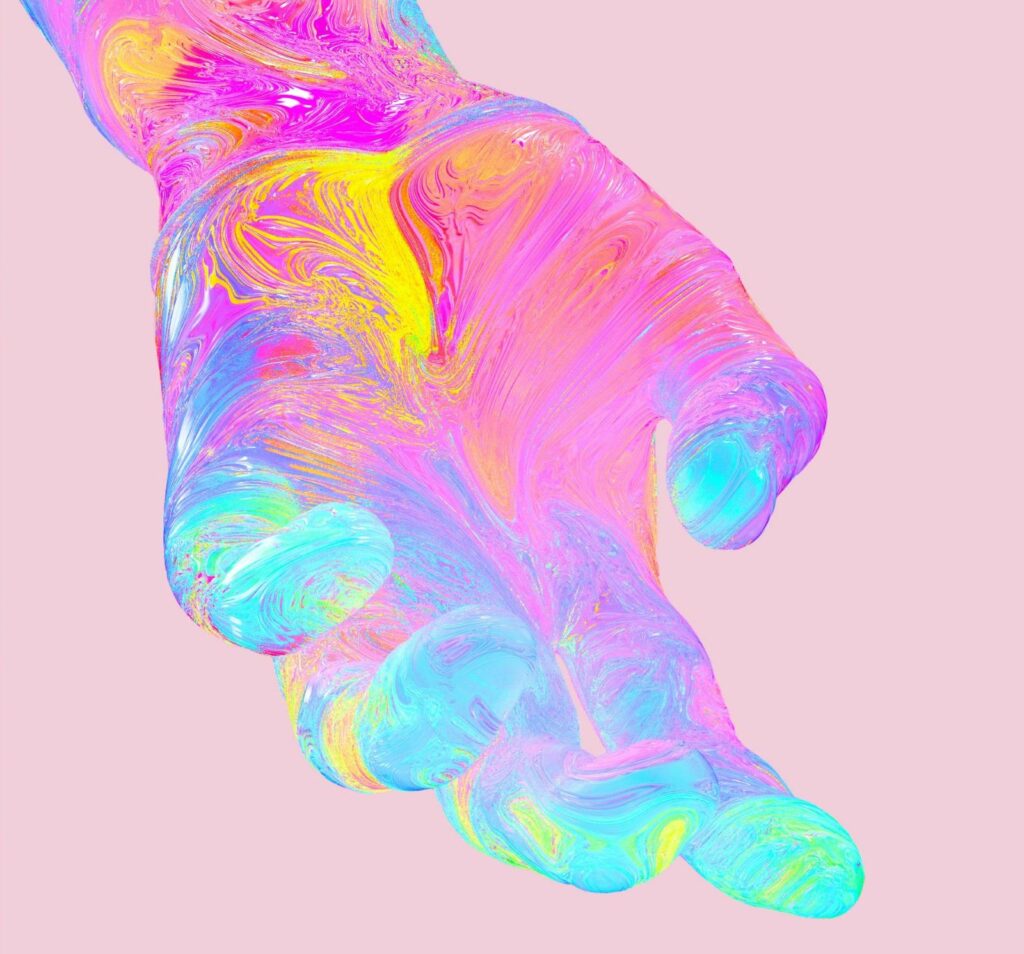
We all feel the same things. Photo by Maxim Berg on Unsplash
I’m reminded of that quote by Maya Angelou, who said, “We are all human; therefore, nothing human can be alien to us.” Yes! I’m not a scholar, but it seems to me Shakespeare’s work endures because he taps into the essence of what it means to be human, with all the pain, glory, comedy, and tragedy. One minute, Hamlet is contemplating suicide, and the next, his friends burst through the door, talking and laughing. That’s certainly how my life is. I think I mentioned it here, but literally the day after I found out my co-worker died, I unintentionally participated in a wedding held in my neighbor’s backyard. My windows were open, so the sounds of the ceremony wafted through the air. Life is tragic and comic, something Shakespeare understood and illustrated.
Even though he wrote his plays hundreds of years ago, they’re still relevant. There is no emotion anyone has ever felt that I haven’t felt too. Our experiences? Highly variable. Our emotions? The same. I bring this up because I wonder how things would be different if we all held this viewpoint. Instead of calling Mexicans rapists like a certain high-ranking official, instead of calling people aliens, what if we recognized that we are all human and thus nothing human can be alien to us?
My spiritual teacher said:
Human society comprises various races. There is no reason whatever to recognize one race as superior to another race. The external differences in constitutions among these human groups cannot alter their basic human traits – love and affection, pleasure and pain, hunger and thirst. These basic biological instincts and mental propensities equally predominate in human beings of all complexions in all countries and in all ages. A mere rustic, illiterate, half-naked tribal mother of an unknown hamlet … in India bears deep maternal affections for her young children; in the same way, a well-educated mother of a locality of New York pours out of her heart a great love for her own children.
The subterranean flow of love and affection exists in all hearts alike. Every person cries out in pain, everyone feels pleasure when there are occasions of joy and happiness. [F]undamentally, their mental existences flow along the same channels of ideas and consciousness. Containing the same cosmic momentum and under the same cosmic inspiration, they all have set out for a tryst with the same destiny.
That means we have more similarities than differences. We are all like one another. We are all human, and we’d do well to recognize that.
I dream of a world where we recognize we all have the same human emotions. A world where we remember there is nothing anyone can feel that we also haven’t felt, and vice versa. A world where we understand we aren’t so alien from each other, and in fact, humans aren’t aliens at all.
Another world is not only possible, it’s probable.
I’m not really sure what to share this week. I’m still in the chrysalis, but/and I can’t force transformation. I can’t be somewhere I’m not and no amount of urging or desire will bring me there. These things unfold in their own time, as much as I wish they followed my timeline instead. What I’m noticing, though, is I’m grateful for co-travelers and so this blog from October 2017 feels appropriate.
What a week. Lots of grief on a societal level, but also a personal one. I’m reminded of how human we are. Of how we’re all in this together. As Ram Dass says, “We’re all just walking each other home.”
In times of trauma and grief, I want to do something. Sometimes there are actions to take, but sometimes all we can do is hold each other while we cry.
With painful feelings, I’ve often wanted someone else to take them away. To siphon them off like sucking water through a straw. I wanted someone, anyone, to make me feel better. Speaking as someone with loads of experience trying to escape her feelings, I can say without a doubt the answer is, “That’s not possible.” No one else can cry my tears for me. No one else can take away my pain. Other people and things may distract me for a while, but just as with storm clouds, they darken the sky whether I acknowledge them or not.
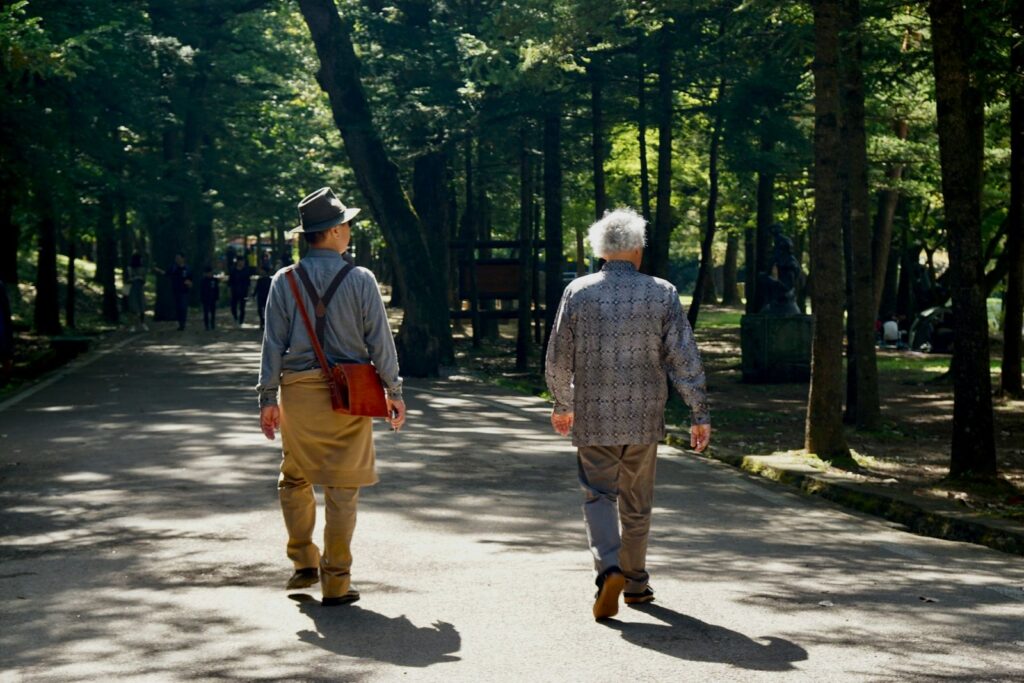
I hope you always have a walking companion. Photo by Beth Macdonald on Unsplash
Ram Dass’ quote reminds me that no one is supposed to take away my pain and sorrow because we are all humans. We are not machines. We can’t write a code that says, “We will never feel sad ever again.” Furthermore, it’s no one’s responsibility to make me feel better. We are fellow companions on this path. We are pilgrims going on a pilgrimage. There may be times I sprain my ankle and have to rely on others for help, but the responsibility for forward motion is still mine, and the responsibility to move through my emotions is still mine.
My spiritual teacher says, “[A] true society is like a group of pilgrims who attain a deep psychic affinity while traveling together, which helps them solve all the problems in their individual and social lives.”
That’s us. A group of pilgrims traveling this rocky path together. I’m speaking in metaphors a lot in this post, but what I’m trying to get at is it’s not my responsibility to solve or fix someone’s emotional state, or vice versa. I don’t have all the answers, or any of the answers, really. I can’t tell a person how to live their life or what they should do to feel better. All I can do is say, “I hear you and I’m beside you. I’m walking this path with you as a companion.” And that’s it. We’ll address problems as they arise – blisters, sprained ankles, etc. – but the emotional states? I’ll be with you during them, but the tears are still yours to cry and the steps are still yours to walk. And maybe that’s enough.
I dream of a world where we recognize we are all pilgrims on a pilgrimage. A world where we sit with each other when we’re in pain. A world where we realize all we can do is be there for each other. A world where we remember we’re all just walking together.
Another world is not only possible, it’s probable.
It’s been truly strange around my neighborhood for the last few days, and I’m not reacting the way I thought I’d react – or the way other people are predicting I’d react. On Thursday, my friend Michael was standing in the doorway and said, “Do you know that guy?” A young man was hopping the fence that separates my apartment complex from my neighbors. I didn’t know him. Michael confronted him as he hopped the fence on the other side.
A few minutes later, police officers drove down the street, and Michael notified them about the trespasser. I thought that would be the end of it, but it wasn’t. The police officers kept coming. And so did two helicopters. And then U.S. marshals. Around 40 police officers and U.S. marshals blocked my street and patrolled with assault rifles drawn. I went grocery shopping in the middle of this and they wouldn’t let me walk back to my apartment without a police escort. Some of my neighbors weren’t allowed in their homes while the officers looked for the guy who hopped the fence.
I read in a news article later that the guy who jumped my fence was armed and the U.S. marshals were looking for him along with two others who were involved in a robbery. One of the culprits violated his patrol. This search and lockdown continued for hours. The two helicopters circled right above me for three hours straight. Police officers literally blocked my driveway.
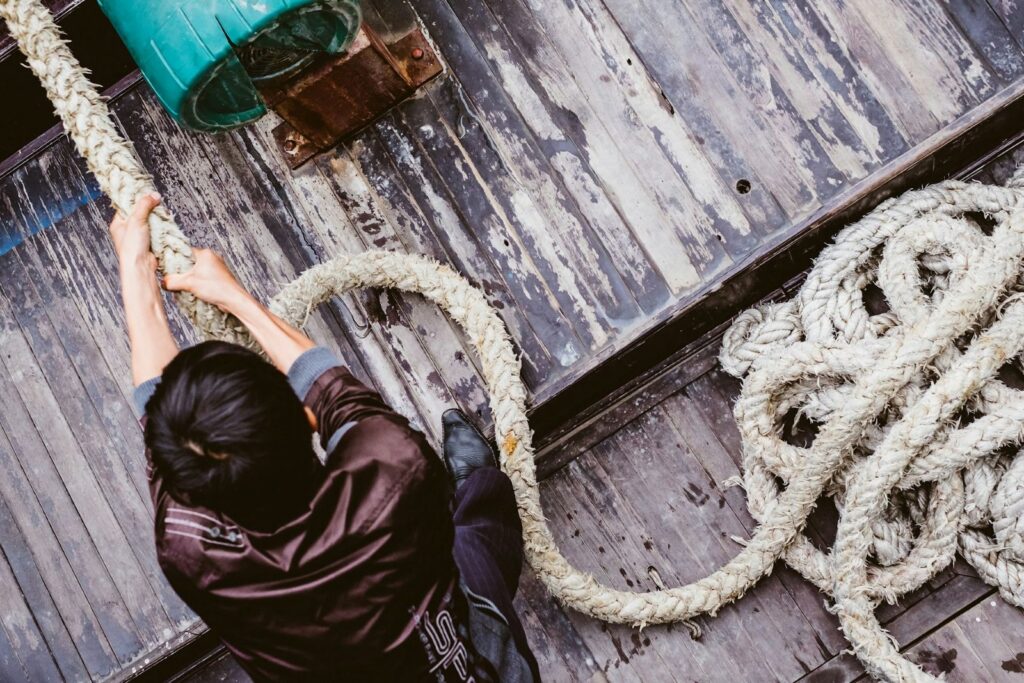
You can do it! Photo by Stijn Swinnen on Unsplash
When I tell most people the events from Thursday, they respond with, “Wow. That’s so scary.” But here’s the thing: I didn’t feel scared. Even though I saw the person they were after. Even though there were guns drawn. I was annoyed. My nerves were frayed from the constant noise and stimulation. But I wasn’t scared.
Then on Saturday, I was without power for 11 hours. I knew it was coming – the electricity company needed to work on a utility pole. Friends remarked how annoying that would be, how unsettling. But I didn’t really mind. It was quiet. I couldn’t even hear the hum of a refrigerator. And it wasn’t so bad because I have a gas stove and could still make myself food. Plus, I just returned from traveling so my tablet was filled with downloaded movies and TV shows. It was fine. I was fine.
My reactions remind me of a quote by A.A. Milne, author of the Winnie-the-Pooh series, who said, “You are braver than you believe, stronger than you seem, smarter than you think, and loved more than you know.” I am strong, and brave, and resilient. I don’t operate with the same amount of fear anymore – even in situations where people expect me to be afraid, I’m not.
Essentially, I’m stepping into my power. I’m owning what I’m capable of as I am, right now. Not the me of 10 years ago. Not the me people think I should be, but the me of here, and now. The me who meets challenges over and over again. The me that says, “I’m scared but I’m still facing this.” I know that’s not true for everyone but even still, maybe you are braver than you believe, stronger than you seem, smarter than you think, and loved more than you know.
I dream of a world where we see ourselves clearly. A world where we stop selling ourselves short. A world where we understand we are capable of so much more than we give ourselves credit for. A world where we take care of ourselves over and over again and realize that’s exactly what we’re doing.
Another world is not only possible, it’s probable.
Lately, I’ve been burning with shame because I don’t perceive myself doing things the “right” way. It’s … not fun and when I searched through my archives, I came across this post from January 2019. May it be a balm if you, too, are a perfectionist.
I have a confession: I make mistakes. I know, that doesn’t seem like much of a confession because everybody makes mistakes, but with the amount of shame and fear that comes up from admitting it, you’d think I stole money from little old ladies and kicked their dogs.
I notice the intensity of shame and fear shifts according to my perception of safety around making a mistake. If I make a mistake and the only person affected is me, the shame and fear levels are low. If I make a mistake at work, the shame and fear levels are high. The levels spike because my brain tells me, “I’m going to get fired! I’ll be destitute!” In my mind, the only way to stay safe at work or in my relationships is to be perfect. If I’m not perfect, something bad will happen. It’s not entirely logical but when are emotions ever logical?
A practice that helps is holding a stuffed animal that represents my inner child to my cheek like a baby and saying, “I’m here. I’m not going anywhere. I’m not ever going anywhere. I’ll meet all your needs. Nothing about you will keep me from meeting your needs.” And then I hold little me in the crook of my arm like a football and say, “I’m here. I’m not going anywhere. I’m not ever going anywhere. I’ll protect you. You can do it! Go ahead and try!” Saying those messages helped.

This dandelion is perfect because it’s complete. That will make sense in the next paragraphs. Photo by Nick Fewings on Unsplash
Something else that helps is remembering security doesn’t come from other people or an external source. Security comes from my actions and my alignment with an internal greater power. Money for instance doesn’t come solely from a job. It can come from an inheritance, winning the lottery, or some other wild source. If I lost my job tomorrow, I could borrow money, start a GoFundMe campaign, or any number of things.
When I’m stuck in perfectionism, my perspective shrinks and I think in black and white. However, the world is in color and much more nuanced than I remember. And also, what does perfect even mean? An early definition of perfect is, “Brought to consummation or completeness.” That’s coming from the 1913 Webster’s Writers’ Dictionary. As a one on the Enneagram, I’m all about finding holy perfection, and the practice for me is to remember that “perfect” doesn’t mean without mistakes, rather, it means completeness.
Completeness ultimately means unification with a power greater than myself, according to my spiritual tradition. I meditate and live my life in such a way that I’m moving closer and closer to a divine entity. I’m trying to unite and merge with something much subtler than I am. When I’m stuck in perfectionism, I lose sight of my journey and instead focus on a snapshot in time. I forget I’m learning and growing. I forget mistakes are an integral part of the process.
Will I still make mistakes? Yes. Will I still beat myself up about them? Probably. But more and more I’m using tools to come out of the shame spirals, to love myself, and to be in the space of acknowledging that “perfect” means not living up to a standard set by myself or someone else. Instead, perfect means complete.
I dream of a world where we remember in our quest to be perfect, really we want safety, peace of mind, and completeness. A world where we realize we are all moving toward something whole and unified. A world where we understand it’s OK to mess up because it serves us in our journey toward wholeness.
Another world is not only possible, it’s probable.
On the heels of my post from last week about making new milestones, the phrase that keeps coming to me is, “Let go of the way you think things are supposed to be and embrace what is.” That’s a big one for me because I have a lot of “supposed tos.” Everything from I’m supposed to have fewer gray hairs to I’m supposed to be wealthier. Where those “supposed tos” came from I couldn’t say but they’re rolling around in my head.
Those “supposed tos” aren’t neutral or ephemeral either. They aren’t something I say, “Oh well!” about. They cause damage because when things don’t match the vision in my head, I feel angry/sad/resentful/disappointed. But it’s all self-inflicted! I’m the one that set myself up for those feelings! You’d think I’d learn by now not to do that to myself, but no. This whole year has been an extended lesson in letting things unfold as they will and embracing what is, not what I think is supposed to be. How do I do that? I’m still learning (obviously) but what I’ve come to is two parts. The first is surrender.
My spiritual teacher says, “Human beings and other created beings perform a multitude of actions. The ultimate action, however, is … total surrender.” Total surrender means aligning my will with my higher power’s will. Total surrender means recognizing I am an actor in this world, not the general manager of the universe. In other words, it’s saying, “OK” to whatever life is throwing at me. I don’t have to like it but I do have to accept it.
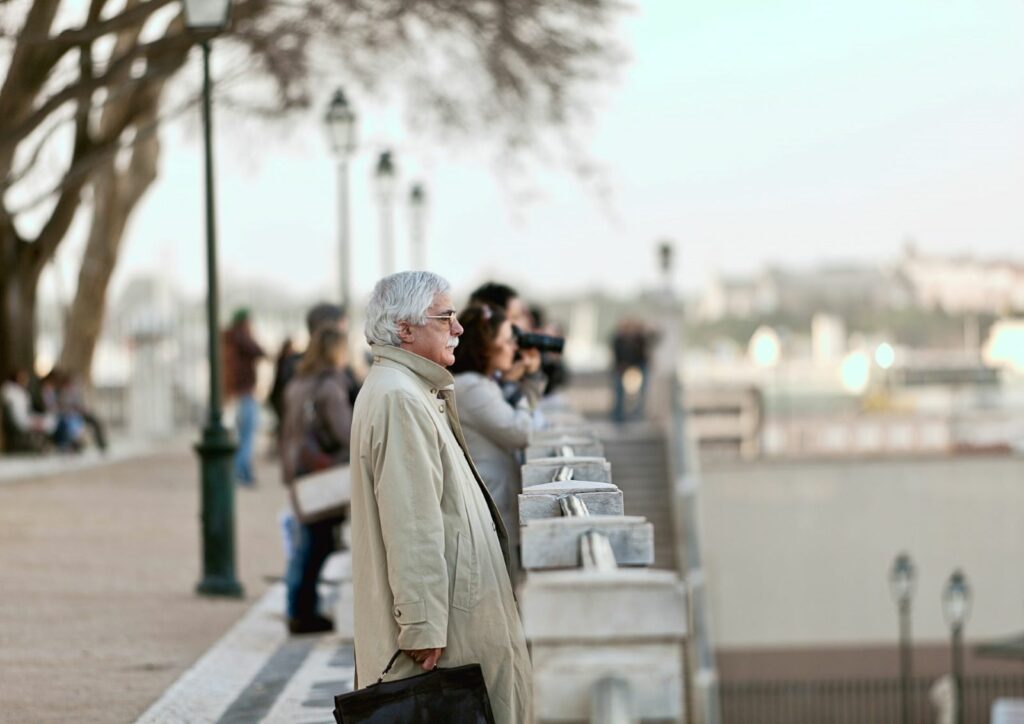
Maybe it’s already the way it’s “supposed” to be. Photo by Helio Dilolwa on Unsplash
The other part is staying present. Ram Dass says in his famous book Be Here Now:
“[I]f you set the alarm to get up at 3:47 this morning and when the alarm rings and you get up and turn it off and say: ‘What time is it?’ You’d say, ‘Now. Now. Where am I? Here! Here!’ then go back to sleep and get up at 9:00 tomorrow. Where am I?? Here! What time is it? Now! Try 4:32 three weeks from next Thursday. By God it is – there’s no getting away from it – that’s the way it is. That’s the eternal present. You finally figure out that it’s only the clock that’s going around … it’s doing its thing but you – you’re sitting here, right now, always.”
Another quote from Ram Dass: “What are you doing? Planning for the future? Well it’s all right now but later? Forget it baby, that’s later. Now is now. Are you going to be here or not? It’s as simple as that!” Being here, now means not only enjoying the present moment but accepting it’s exactly how it’s supposed to be, gray hairs and all.
I dream of a world where we let go of our “supposed tos” and embrace what is. A world where we remember expectations only set us up for disappointment and resentment. A world where we understand as much as we have dreams for the future, we are actors, not general managers, and that means it’s better for us to let things play out how they’re meant to not how we think they’re supposed to.
Another world is not only possible, it’s probable.
All week I’ve been thinking about how people are complicated and contradictory. A person can be a mass murderer and an excellent dog parent. A man can beat his wife and act meek at work. A woman can preach love and kindness and be sharp and cutting with her inner circle. Instead of trying to puzzle out which side is the “real them,” my perspective is it’s all them.
Walt Whitman speaks to this in one of his poems when he writes, “Do I contradict myself? / Very well then I contradict myself, / (I am large, I contain multitudes.)” In therapy, this contradiction is recognized via the modality “Internal Family Systems,” also known as parts work. The traditional form of IFS categorizes the various parts of a person into three roles:
- Managers, who seek to control surroundings, manage emotions, and navigate tasks in daily life.
- Exiles, or parts that hold hurt, fear, and shame that are tucked away and hidden from conscious awareness.
- Firefighters, who seek to inhibit difficult emotions by any means necessary such as addiction.
Personally, I find those categories too limiting. For instance, I’ve done a lot of trauma and recovery work so the parts of me that hold hurt, fear, and shame are not exiled – they are seen, heard, and accepted. Regardless, what I appreciate about parts work is it recognizes how complex humans are – that we contradict ourselves and act in surprising ways. And instead of focusing on one part or another part, IFS emphasizes embracing all of it. IFS says the part of you that flies into a rage is just as much you as the part that weeps over a sunset. It’s ALL you.
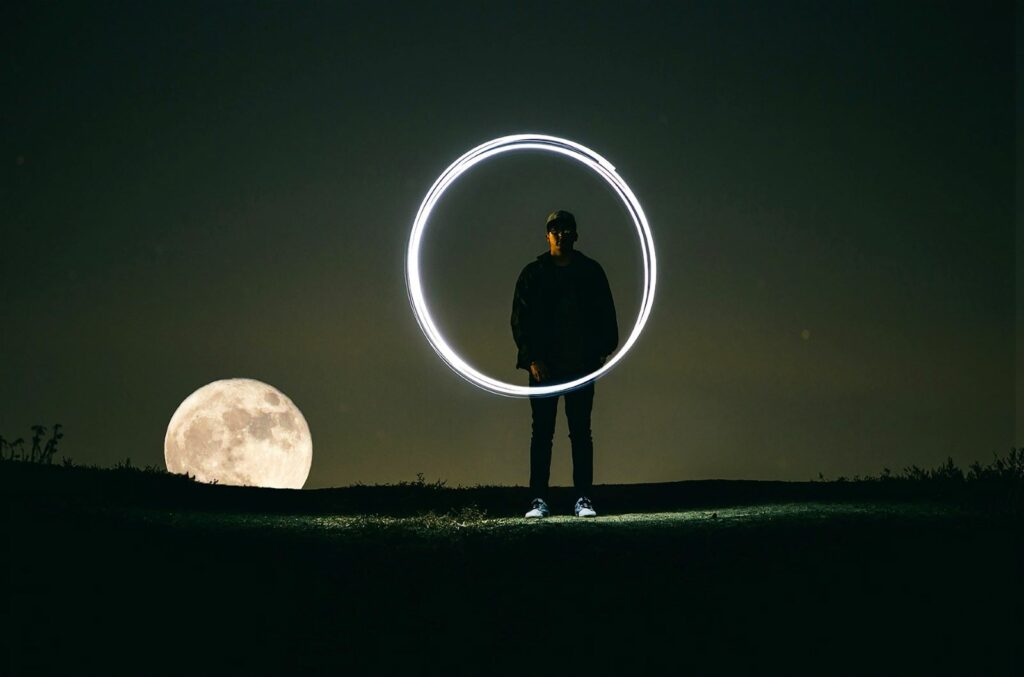
We are everything. Photo by Austin Neill on Unsplash
Our society very much likes polarization and black-and-white thinking. “This person is a monster! This person is a saint! This thing is good! This thing is bad!” But that’s not true. Reality is nuanced. People are nuanced. You can be a little bit right and a little bit wrong AT THE SAME TIME! Baffling, right? But it’s true.
This is something I appreciate about my spiritual tradition – it emphasizes embracing everything. It doesn’t say this thing is an expression of an infinite loving consciousness but that thing is not. It doesn’t say, “You’re only allowed to feel happy and peaceful all the time.” No, my spiritual tradition says, “You’re human, you have instincts and emotions and we want you to feel those too. We want you to recognize those parts of you are also sacred and holy.”
Gorgeous, right? We practice viewing everything as sacred with something called madhuvidyá, which literally means “honey knowledge.” It’s a sort of magic wand that transforms your thinking when done well. My spiritual teacher says, “This madhuvidyá will pervade your exterior and interior with … [ecstasy] and will permanently alleviate all your afflictions. Then the ferocious jaws of [degeneration] cannot come and devour you. The glory of one and only one benign entity will shine forth to you from one and all objects.”
The practice of madhuvidyá says even this thing I don’t like or perhaps even hate is an expression of an infinite loving consciousness. Practicing madhuvidyá means I’m able to see beyond the surface of people, places, and things to witness their true form. I recognize everything is Brahma, Cosmic Consciousness, Source, the Universe, whatever name you have for it. And just as the universe is vast, complicated, and contradictory, people are too. As a reflection of Cosmic Consciousness, we contain multitudes.
I dream of a world where we understand people are not one way or another. A world where we recognize people have parts of themselves that get expressed at different times. A world where instead of thinking one part is real and another is false, we understand that all of it is true. A world where we remember that as reflections of Cosmic Consciousness, we contain multitudes.
Another world is not only possible, it’s probable.
Francis Weller writes in his book The Wild Edge of Sorrow that on a trip to Burkina Faso, he remarked to one woman that she had a lot of joy. Her response was, “That’s because I cry a lot.” I keep thinking about that because I notice sometimes the people who are the most joyful, vibrant, and alive are also the most depressed and even suicidal.
This is on my mind because a friend of mine died suddenly about a week ago and I suspect it was a suicide based on the abruptness and also how his family hasn’t mentioned the cause of death. But just in case I’m wrong, I’m not going to name him publicly and instead write about someone I can: Robin Williams.
If you’ve seen any movies or interviews with Robin Williams, you know he was a wacky delight. Julie Kavner, best known as the voice of Marge Simpson, said in a Guardian article, “When we were making Awakenings, we were filming in the deserted part of a mental hospital, and often shooting through the night. And there was this TV in the corner on mute, and Robin, between breaks during the scenes, would go off on a riff, inventing dialogue on the TV show, entertaining everyone at 3 a.m., whatever time. It was a very tough role that he did a phenomenal amount of research for, but he didn’t keep to himself between takes – he was out there, giving to everyone.”
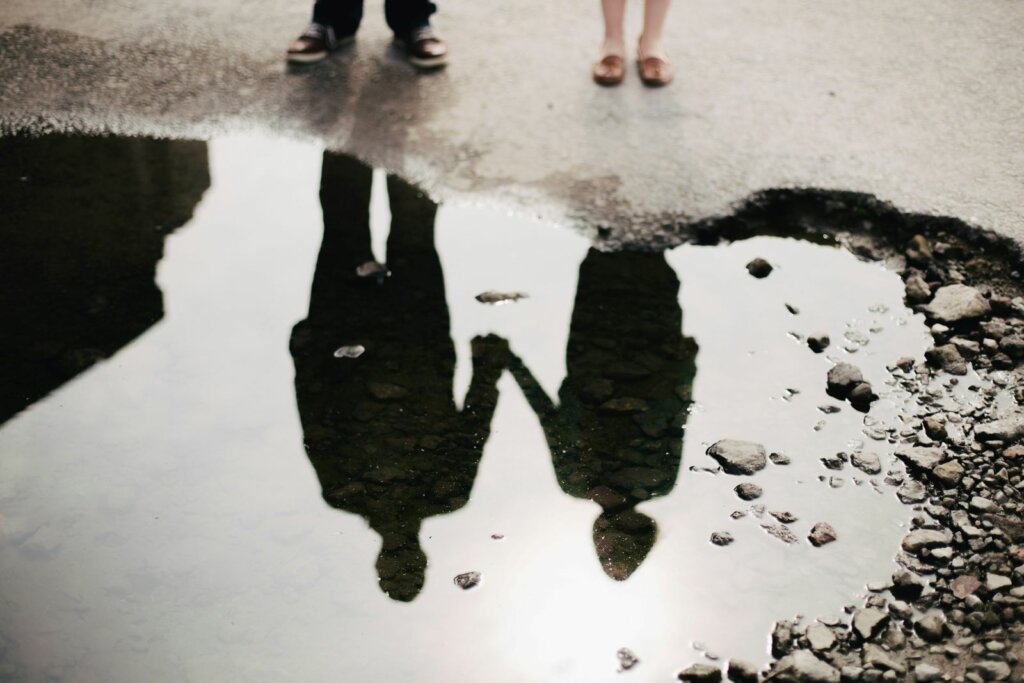
I hope you are held like this. Photo by The HK Photo Company on Unsplash
Williams was the life of the party and yet he committed suicide, shocking everyone. It turns out he had a form of dementia that essentially caused his brain to fall apart so who knows how much was the disease versus depression but even still. This man who was so capable of bringing joy to others suffered so greatly that he decided he couldn’t keep living. I have trouble wrapping my mind around that and posed the question on Facebook about the dichotomy.
One person responded that she was often the life of the party because she was compensating for depression. She was trying so hard not to be depressed, to not show people how low she felt that she put on a mask to hide it. But she also said she wished more people would talk about how they felt to normalize it, to know they don’t have to hide.
I can’t say this to my friend or to Robin Williams, but I can say it to you. I know what it’s like to be in the shadows and also the light. I’ve traversed both spaces and there’s nothing wrong with either. You don’t have to hide or pretend with me. You can take off your mask and let me know how you’re really feeling because I’m not scared to hold space for whatever is alive in you. Human beings are complicated and complex. Every part of you – the parts you’re proud of, the parts you’re ashamed of, the parts you’re scared of – all of them are welcome whether you share them with me or not.
Weller says, “Life is hard, filled with loss and suffering. Life is glorious, stunning, and incomparable. To deny either truth is to live in some fantasy of the ideal or to be crushed by the weight of pain. Instead, both are true, and it requires a familiarity with both sorrow and joy to fully encompass the full range of being human.”
I seek to encompass the full range of being human and that means I’m holding both light and shadow because I know neither can exist without the other.
I dream of a world where we take off our masks and express how we truly feel. A world where we recognize people want to know the real us, warts and all. A world where we remember authenticity is usually met with care. A world where we know both light and shadow exist in all of us and being human means holding both.
Another world is not only possible, it’s probable.
What follows is a repost from 10(!!) years ago so not all of the examples are relevant anymore. For instance, I no longer have a neighbor who plays loud music, nor am I waiting for my passport in the mail. I’m also far less anxious and melodramatic but the general wisdom about not spinning out and attaching a story to an emotion still applies. Enjoy.
I had a very interesting conversation this week with a friend. He said there’s a difference between feeling an emotion and attaching a story to it. For instance, I may be sad about losing a relationship, which is a natural emotion, but what makes it worse is the story I tell myself on top of it such as, “I’ll be alone for the rest of my life,” “No one will ever love me the same way,” etc. I can compound an emotional state by adding a story and really working myself into a tizzy.
What’s hard for me to do is let the emotion go through me. I’ve spent a good chunk of my life doing what I could to not feel, to avoid feeling my feelings at all costs, to keep them at bay because I was afraid of feeling the feeling. In my mind, it was better to not feel angry, sad, lonely, etc. in the first place. So now that I’m sober (i.e., actually feeling my feelings and not trying to numb out), I still have a hard time letting my emotions pass through me, precisely because I can drag them out by adding a story to them.

Can we let things move through us like the wind blowing grass? Photo by Abdallah Kokash on Unsplash
The emotion turns into a big dramatic thing. I make it so much worse by piling on untruths such as, “I’ll feel this way forever,” or, “Things will never change.” There’s a lot of “always” and “never” in my stories. And a whole lot of catastrophizing where I jump from, “My neighbor is playing loud music,” to, “Oh my God, I need to move somewhere else!”
I’ll admit that much of this has to do with the fact that I’m anxious and melodramatic. For those of you who aren’t, you probably can’t relate to what I’m writing about. But for those of you who can, I want to point out how these stories and the catastrophizing make the emotion so much worse than it has to be. If I allowed myself to feel my moments of grief or loneliness, they wouldn’t last NEARLY as long.
I’m not sure what to do about all this other than to make myself aware of it. My dear friend who’s a therapist often tells me that awareness alone can make a huge difference. Maybe by understanding that I tell myself a lot of false “truths” I can catch myself in the act and remind myself they’re not the case. Just because I’m scared about not receiving my passport on time to leave for Europe, doesn’t automatically mean my boss will get pissed and fire me and never send me to Europe again. Instead, it’s better for me to stay present with what is and acknowledge, yes, I’m anxious about my passport arriving in the mail, but that’s all I get to be anxious about because nothing else has happened.
It all comes down to being present, to paying attention to what’s in front of me, and not future tripping or spinning out about what could be. There are a million things that “could be,” and when I start attaching emotion to all those possibilities, that’s when I really get into trouble. Can I let it be what it is instead?
I dream of a world where we feel, process, and let go of what’s before us. A world where we stick with whatever emotion we’re feeling and not compound it by telling ourselves falsehoods. A world where we allow emotions to come in and emotions to go out, understanding the process can be fast or slow depending on how much extra stuff we throw in. A world where we just let things be what they are.
Another world is not only possible, it’s probable.
I recently took the University of Pennsylvania’s VIA Survey of Character Strengths in an effort to leverage my strengths and become happier. Marty Seligman, the father of positive psychology, said to be happier we can use our top strengths and apply them to something we don’t like. For instance, if you don’t like filing your taxes and your top strength is humor and play, you can gamify filing your taxes.
My top strength completely shocked me. When the result came in, I texted a friend and said, “Is this right? This doesn’t seem right.” My top strength? Bravery and valor. BRAVERY AND VALOR. UPenn defines this as, “You are a courageous person who does not shrink from threat, challenge, difficulty, or pain. You speak up for what is right even if there is opposition. You act on your convictions.” OK, well, when you put it like that, it’s true. And then the universe answered my question about whether that’s my top strength because independently, unprompted, someone told me over Facebook that I’m like a first responder always running toward the fire, that I don’t shy away from issues. Message received!
I don’t know how to apply bravery and valor to filing taxes but what I am applying this character strength toward is other things, namely my relationship to fear itself. Our society has a very combative relationship to fear. We say, “Screw fear! Don’t let fear stop you! If you’re scared, do it anyway!” We think of fear as a bad thing, something to push away or bulldoze over. I get it. Me too, but it’s not really working for me anymore. I find that instead of feeling less afraid, fear is taking over and I’m falling into a fugue state where I can’t concentrate on anything because there’s not anything to do. In other words, my fears are not around things like ice skating or public speaking. They’re abstract.
Telling myself all the reasons why I shouldn’t be afraid, also doesn’t help because I become irrational when I’m afraid. I thought about it and asked, “What would approaching this issue from my top strength of bravery and valor mean?” And you know what it means? Facing fear head-on without trying to fix, change, or solve it. I’ve been setting a timer for 15 minutes for the past few days and just letting fear flood my body. I’m not trying to soothe myself, push it away, or do anything. I’m letting it be. I’m saying to myself, “It makes sense that you feel afraid. It’s OK. I’m here. It’s safe for you to feel afraid.”
No one has ever said that to me in my life. It’s safe to feel afraid? I don’t have to run from this emotion just like I don’t run from anger and sadness? I’m finding that’s exactly what I need. Like I wrote about a month ago, change requires not only awareness and action but also acceptance. Before I can do anything about the fear, I need to feel it. I need to accept that it’s there, not minimize the emotion or declare all the reasons why it’s invalid. I can’t speak for everyone but for me, I perpetually want a container. I want a safe space to fall apart, to unravel. I want someone to witness me with love and neutrality. It’s one of the reasons I love therapy so much.
However, I only talk to my therapist once a week. What about the other 167 hours? I am the only person who is with me constantly so the best thing I can do is become a safe space for myself. It feels like the most terrifying thing I can do, let myself feel afraid, and yet doing so I feel more settled, more present, more adult because I’m not letting a scared inner child take over my body. I’m giving myself the space to feel my feelings like a good parent. In other words, I’m being brave. And wouldn’t you know it, I do feel happier.
I dream of a world where we stop trying to force ourselves to feel one way or another. A world where we create a safe container to feel all of our emotions. A world where instead of making fear an enemy, we recognize there’s a reason we feel scared. A world where we let ourselves feel afraid because we know it’s safe to do so.
Another world is not only possible, it’s probable.
P.S. If you take the strengths test, I’d love to hear your results.
When I was 7, there was a boy in my first-grade class that I didn’t like. I don’t remember why, his name, face, or any identifying features, but what’s seared into my brain is how I treated him on Valentine’s Day. It’s standard practice to give all the kids in your class a Valentine and for this boy, I decided to let him know how I really felt about him. I took out a piece of notebook paper and wrote, “I hate you, I hate you, I hate you, I hate you, I hate you,” until I ran out of space. But that didn’t feel like enough so I asked my brother, “What’s a word that means over and over again?” and he responded, “Et cetera,” which of course I didn’t know how to spell.
So at the end of a page filled with “I hate yous” I tacked on an “etc.” I tucked the paper into an envelope and signed my name so he would know it was from me. The next day I watched his face crumple reading my “Valentine.” He showed the piece of paper to our teacher and she said, “I’m sure she didn’t mean it.” I remember feeling mixed emotions because I did mean it. I did hate him but at the same time, I didn’t expect him to respond the way he did. In my mind, he was a monster, incapable of emotions, but seeing how hurt he was gut-punched me.

Peace is possible if we do the internal work. Photo by Sunguk Kim on Unsplash
As a 7-year-old, I wasn’t thinking about how this little boy would feel. All that mattered was expressing how I felt because I was the wronged party. He was mean to me. What I did to this little boy is what some people are doing now – they are only thinking about how they feel, not the impact their words will have on other people. What I also did to this boy is I dehumanized him. As a 7-year-old, there weren’t dangerous consequences to my perception but that’s not true for adults.
When you perceive a human being as an animal or a monster that must be destroyed, you will put them in a cage. You will bomb the crap out of their homeland. You will decapitate them and their family. You will do whatever it takes to show them how you feel without considering how they feel.
It’s worth mentioning that balance is important. There is such a thing as considering someone else’s feelings too much and that’s known as codependence. By and large though, we’re suffering from a lack of empathy, not too much of it. As a highly sensitive person, I’ve been crying about the ugliness in the world. It feels not great to read people are saying, “Gas the Jews!” and “Wipe Gaza off the face of the Earth!” Have we forgotten, just like I did, that words hurt? They don’t leave a visible mark like bruises do but can ring in your ears long after a physical injury has healed.
What do we do about this? How can we remember each other’s humanity when it feels so very challenging? There’s a Nonviolent Communication (NVC) exercise called simply “the exercise” that is so powerful for this. It’s a way to shift your inner landscape closer to connection, compassion, and peace. Any movement in that direction is a win so don’t worry if you’re not suddenly filled with peace after doing it.
I know it’s easy to let anger fuel us, I’m guilty of that myself, but if you have even a modicum of a desire to create a peaceful planet that goes beyond the limits of small social identities, I encourage you to do the exercise I linked to. Not only that, share it with your friends. As humans, we don’t have to give in to our baser instincts. There is another way. We can move toward peace but it requires more than a ceasefire. It requires us to view each other differently.
I dream of a world where we recognize how dangerous it is to only think about how we feel and not how others feel. A world where we don’t let anger and hatred fuel us. A world where we do the work to see others as human beings no matter how hard it is. A world where we all work together to move toward peace.
Another world is not only possible, it’s probable.
